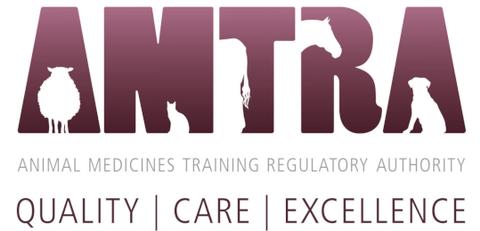
Loading search...
Loading search...
Loading site search...
Loading site search...
Loading site search...
Loading...
Loading site search...
This University Diploma will allow candidates to build on their academic credits achieved during their SQP training, and develop additional skills and knowledge to enhance their expertise further. The course is set to run from September 2024, lasting two years, and comprises a range of modules for delegates to choose from:
To register your interest for the course or find out more, please contact animalswd@harper-adams.ac.uk.
Any qualified SQPs of all registration categories can join this course.
Individual modules run over six months each, designed to be completed within a maximum of two years.
This course is delivered mainly online or via distance learning, with optional attendance study days at Harper Adams.
���붯�� is passionate about the role and impact of SQPs/RAMAs, and we feel this is a very welcome addition to the portfolio of qualifications we can offer to the profession. We must remember that SQPs/RAMAs are regulated professionals who have an incredibly responsible job and the role across the animal medicines industry. They should rightly be proud of the service they deliver for the industry and this qualification is another tool which helps reinforce the quality of skills that they offer.
George Aspey, Lecturer at ���붯��
Pricing is available on application
For further information, course dates, and to book, please contact:

You have the flexibility to choose the modules that best fit your needs. Each module is designed to last approximately six months. Modules will be scheduled based on demand, prioritising the most popular choices for earlier delivery. Each module is available for individual study as CPD if desired, without the requirement of completing the full Diploma.
There are currently a range of 6 modules for you to choose from. RAMAs will carry forward their initial training credits, valid for 7 years. The Diploma includes 60 Level 5 credits, equivalent to a second-year degree level, with an option for 15 Level 4 credits, equivalent to a first-year degree level. The number of credits acquired during RAMA’s training is below.
| Category | Credits |
|---|---|
| R-SQP | 40 |
| G-SQP | 35 |
| K-SQP | 30 |
| E-SQP | 20 |
| L-SQP | 30 |
| J-SQP | 15 |
| C-SQP | 15 |
| A-SQP | 20 |
| CA-SQP | 25 |
| JA-SQP | 25 |
| EA-SQP | 30 |
Reflective Practitioner (15 credits) - The module covers sourcing and referencing literature, structuring academic writing, appraising information sources, and using reflective models to improve work scenarios, skills crucial for other modules.*
Advanced SQP Practice (20 credits) - The module includes practical lab skills, pharmacology (understanding drug mechanisms), resistance development and management, pharmacovigilance, responsible prescribing, and considering environmental impacts.
Herd Health Planning (10 credits) - The module covers health and welfare assessments, data management, disease prevention strategies, assurance schemes, animal welfare, and the roles of paraprofessionals.
Companion Animal Nutrition (10 credits) - The module encompasses anatomy and physiology of the digestive system, nutrition for various life stages and lifestyles, roles of nutrients with nutritional analysis, diet formulation, and considerations of customer factors and communication.
Equine Nutrition (10 credits) - The module covers the anatomy and physiology of the digestive system, nutrition tailored for different life stages and work levels, roles of nutrients with nutritional analysis, medical disorders and nutrition's role, feedstuffs and their composition, and diet formulation techniques.
Farm Animal Nutrition (10 credits) - The module includes study areas such as nutrients and digestion for both ruminant and non-ruminant animals, feed characterisation and various feeding systems, understanding nutrient requirements and food intake, developing effective feeding strategies, and exploring the roles of minerals and vitamins in animal nutrition.
*Designed to be studied first, although this is not essential.
We use cookies to ensure that we give you the best experience on our website. If you continue without changing your settings, we'll assume that you are happy to receive all cookies on the website. However, you can change your cookie settings at any time.